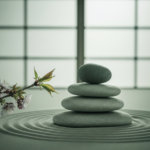I can sit with patients and families and talk about hospice, dementia, or end-of-life care without hesitation. Years of training as a physician and geriatric psychiatrist have prepared me for those conversations. But when my own parent needed care, all that training suddenly felt useless.
Medical knowledge didn’t shield me from fear or guilt. It didn’t stop the second-guessing that came with every decision. It didn’t help me navigate the family disagreements about “what Mom would have wanted.” In that moment, I wasn’t the physician. I was the daughter, and that was far more complicated.
Why caring for our parents feels different
We assume our clinical background makes us better equipped for caregiving. In reality, it can make the experience harder:
- Detachment disappears. With patients, we create professional distance. With our parents, there’s no such thing. Every change in their health feels personal.
- Self-doubt multiplies. A diagnosis or care plan feels straightforward in the hospital, but at home with your parent, the “what-ifs” echo louder.
- The “doctor in the family” label sticks. Siblings, spouses, and relatives defer to us, sometimes without asking if we want that role.
- The guilt is heavier. We carry guilt for not being there enough, not doing enough, not stopping time.
And then there’s what I call the “prophet in your own country” paradox. With patients, our expertise is trusted. Our recommendations carry weight. But at home, that authority often disappears. Siblings may dismiss our input, parents may reject our guidance, and relatives may treat our years of training as just another opinion. It can be disorienting: We are trusted to care for the sickest patients in the hospital, but when it comes to our own families, our medical judgment is questioned or even ignored. That dissonance adds another layer of grief and frustration because, beneath it all, we are still the child, not the doctor. And sometimes, our parents don’t want our clinical expertise. They just want their son or daughter.
What medicine doesn’t teach us
Medical school doesn’t prepare us for the messy realities of family caregiving: sibling conflicts, balancing professional expertise with personal grief, or the emotional whiplash of becoming both “child” and “clinician.” And yet, this is the hidden reality for many physicians in midlife. We are caring for children and parents at the same time, all while holding demanding careers. Burnout research rarely accounts for this extra layer, but it shapes the way we show up in medicine every day.
Lessons I’ve learned as both physician and caregiver
- Vulnerability is not weakness. Admitting that this is hard, even for a doctor, is not failure. It’s honesty.
- Boundaries matter. We can’t be the full-time physician and the full-time child. Sometimes, the best gift we can give is to step back and simply be “son” or “daughter.”
- Caregiving requires community. Just as no physician practices in isolation, no caregiver thrives alone. Support groups, coaching, and conversations with colleagues make a difference.
- Compassion must turn inward. We extend compassion to our patients daily. We owe ourselves the same grace.
A call to my colleagues
If you are a physician caring for aging parents, you are not alone. Struggling does not mean you are less capable or less committed. It means you are human. We entered medicine to help others. But sometimes the most important patient we care for is in our own family, and sometimes, the hardest one to care for is ourselves.
Barbara Sparacino is a triple board-certified physician in adult and geriatric psychiatry and addiction medicine, and the founder of The Aging Parent Coach. With over fifteen years of clinical experience, she empowers adult children to navigate the emotional, legal, and caregiving complexities that arise when supporting aging parents. Her expert insights have been featured by major outlets, including NBC, Fox News, CBS, Apple News+, Style, Care.com, and Next Avenue.
Through her signature program, The Aging Parent Plan, Dr. Sparacino helps families make confident, values-based decisions about care while preserving their own mental and emotional well-being. She continues to practice psychiatry and teach through her work with the University of Miami and the Veterans Health Administration, advocating for a compassionate, evidence-informed approach to aging and mental health.
Follow her on Instagram, TikTok, or visit The Aging Parent Coach to learn more.




















![AI censorship threatens the lifeline of caregiver support [PODCAST]](https://kevinmd.com/wp-content/uploads/Design-2-190x100.jpg)

